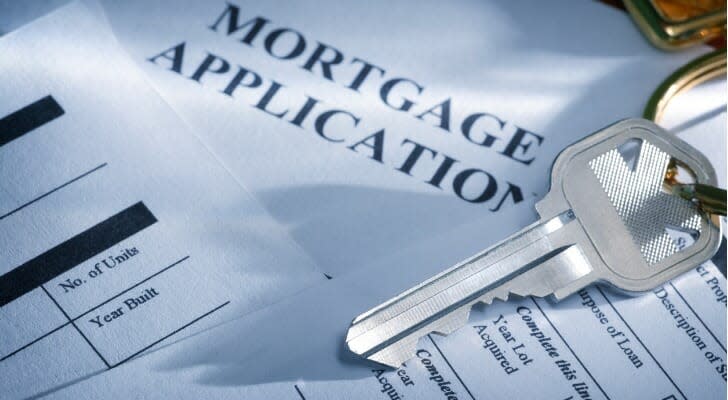What Is a Mortgage Contingency?
Whether you're buying or selling a home, getting the home under contract is just the start of the process. Since most Americans don't buy their homes with cash, they need a mortgage to complete the transaction. However, it isn't guaranteed that you'll be approved for a mortgage. This is why most purchase contracts include a mortgage contingency. In this article, you'll learn what a mortgage contingency is, how long they last and whether you should waive one for your offer to be competitive in today's housing market. Consider working with a financial advisor as you buy or sell a property.
What It Is and How It Works
A mortgage contingency is a clause in the purchase contract that allows buyers to walk away from the deal without penalty if they cannot secure financing. Mortgage contingencies are also known as "financing contingencies" among mortgage and real estate professionals.
When homebuyers enter into a contract to buy a home, they generally put down an earnest money deposit. Some homebuyers put down larger deposits to make their offer more competitive over other bidders.
The earnest money deposit goes toward the purchase of the home and signifies to the seller that they are serious about buying the home. With a mortgage contingency, you won't lose your deposit if you are unable to get approved for your mortgage. For example, the lender may decline your application if your credit score drops, you lose your job, or if the lender determines that the monthly payment is too high compared to your income.
Once the mortgage lender finishes underwriting and approves your loan, you can remove the mortgage contingency from your purchase contract. The typical mortgage contingency lasts 30 to 60 days. However, it can be much shorter based on the negotiations between the buyer and the seller. The mortgage contingency is one of the last contingencies that homebuyers drop before closing on a home purchase.
Should You Waive a Mortgage Contingency?
Mortgage contingencies protect your deposit in case you can't get approved for your loan. However, in a hot housing market, homebuyers look for every opportunity they can find to get an edge over other bidders. They often drop contingencies that are designed to protect the buyer from a bad purchase or from losing their deposit. These contingencies include appraisal, inspection, financing and others.
When bidding on a home, does it make sense to waive the mortgage contingency? Consider these tips before waiving your mortgage contingency:
How much do you want the home? Many homebuyers struggle for months to find "the perfect home" (or even one that's suitable). Do you want this home bad enough to lose your deposit in case your loan isn't approved?
Confidence in your finances. Getting approved for a loan involves your credit, your income and your down payment. If you're thinking about waiving the mortgage contingency, pay special attention to your credit score. Don't apply for new credit and keep your balances low. Having a stable job or source of income helps, too. And be sure that you have adequate money for the down payment and several months of reserves.
What if you lost the deposit? If you lose your deposit, will it be a large financial blow? You want to balance the deposit size with being competitive, but not so large that it would prevent you from buying another home if this one doesn't work out.
The Bottom Line
Buying a home is a dream for many Americans. However, the mortgage process can be a mystery and getting approved isn't guaranteed. A mortgage contingency protects homebuyers from losing their deposit in case they aren't approved. While some buyers in today's housing market waive this contingency, consider the risks before doing so. It helps to speak with your financial advisor to discuss how this might impact your other financial goals.
Tips on Mortgages
Working with a financial advisor can help you save up enough for the down payment on your home. The higher your down payment is, the more likely you are to be approved for your mortgage and the smaller your monthly payment will be.
Finding a qualified financial advisor doesn't have to be hard. SmartAsset's free tool matches you with up to three financial advisors who serve your area, and you can interview your advisor matches at no cost to decide which one is right for you. If you're ready to find an advisor who can help you achieve your financial goals, get started now.
Use SmartAsset's mortgage comparison tool to compare mortgage rates from top lenders and find the one that best suits your needs.
Getting a mortgage approved requires the buyer have good credit, reliable income and adequate financial resources. For most mortgages, you'll need to have a down payment of at least 3% of the purchase price. Our mortgage calculator estimates your monthly payment based on your purchase price, down payment, interest rate and loan term. Before moving forward with your mortgage, make sure that you can comfortably make the monthly payment without sacrificing your other goals.
Photo credit: ©iStock.com/DNY59, ©iStock.com/fizkes, ©iStock.com/BrianAJackson
The post What Is a Mortgage Contingency? appeared first on SmartAsset Blog.

 Yahoo Finance
Yahoo Finance 


